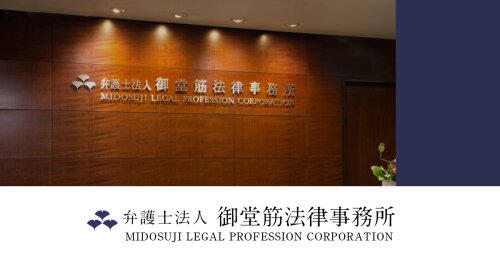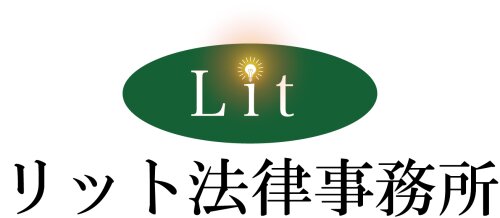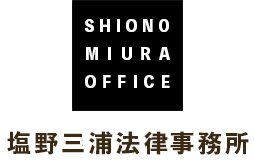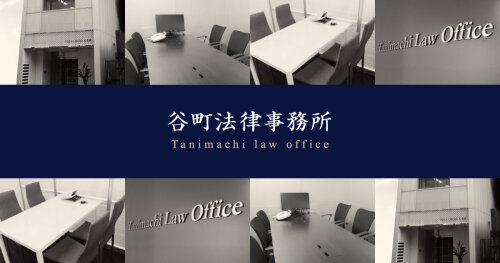Best Sanctions & Export Controls Lawyers in Osaka
Share your needs with us, get contacted by law firms.
Free. Takes 2 min.
List of the best lawyers in Osaka, Japan
About Sanctions & Export Controls Law in Osaka, Japan
Sanctions and export controls in Osaka, Japan are laws and regulations that govern the transfer and trade of certain goods, technologies, and services to foreign countries or restricted entities. These measures are designed to protect Japan's national security, meet international obligations, and support global efforts to prevent the proliferation of weapons and illegal activities such as terrorism or money laundering. Both individuals and businesses operating in Osaka must comply with these requirements, which apply to physical exports, electronic transfers of technology, and high-value transactions.
Why You May Need a Lawyer
Navigating Japan's complex sanctions and export controls regime can be challenging. Many individuals and organizations in Osaka seek legal advice in the following situations:
- Uncertainty about whether a product, service, or technology is subject to export restrictions
- Engaging in international trade or business with countries or entities covered by Japanese or foreign sanctions
- Internal audits or compliance checks regarding export practices
- Receiving notice of investigation or penalty from Japanese authorities
- Seeking to apply for an export license or exemption
- Joint ventures or collaborations with entities located in countries under export controls
- Responding to updates in Japanese or foreign law affecting exports or business operations
- Training staff and developing compliance programs for your business
- Legal disputes involving breach of export controls or sanctions regulations
- Advice on complex "deemed exports" such as transfer of technology to foreign nationals within Japan
Local Laws Overview
In Osaka, sanctions and export controls are primarily governed by national Japanese law, but local firms and individuals must pay careful attention to how these laws are implemented and enforced in the region. Key regulations include:
- Foreign Exchange and Foreign Trade Act (FEFTA): The main statute regulating exports, including goods, technology, and services. It mandates licenses for the export of controlled items and prohibits transactions with certain countries or individuals.
- METI Export Control Orders: The Ministry of Economy, Trade and Industry (METI) issues orders specifying lists of controlled goods (such as weapons or dual-use technologies) and export destinations subject to restrictions.
- Sanctions List Compliance: Japan maintains lists of entities, such as those related to North Korea or Iran, that are subject to transaction prohibitions and asset freezes.
- Deemed Export Rules: Transfer of controlled technologies to non-Japanese nationals in Osaka can be regulated as an "export" and may require licensing.
- Coordination with International Sanctions: Japan often aligns its sanctions with those of the United Nations or major trading partners, impacting people and businesses in the Kansai region, including Osaka.
Violations can result in administrative penalties, criminal prosecution, and loss of business licenses. It is crucial for both companies and individuals to proactively seek compliance advice in this area.
Frequently Asked Questions
What are sanctions and export controls?
Sanctions are legal measures restricting trade or financial transactions with specified countries, organizations, or individuals. Export controls are regulations that govern the transfer of goods, technology, or services to foreign destinations or persons, especially those on restricted lists.
How do I know if my product is subject to export controls?
Products are included on METI's export control lists, which cover weapons, dual-use items, and sensitive technologies. It is important to check the item's classification code and seek expert advice if unsure.
Can I export to countries under Japanese sanctions?
Generally, you cannot export goods, technologies, or services to countries under sanctions without a license. These include, but are not limited to, North Korea and Iran. Always check the latest regulations.
Do sanctions and export controls apply to electronic transfers such as emails or cloud sharing?
Yes, electronic transfers of controlled technology, including via email or cloud services, are regulated and may be treated as exports under Japanese law.
What is a deemed export in Japan?
A deemed export occurs when controlled technology is transferred to a foreign national within Japan, such as in Osaka. This transfer can require an export license, depending on the technology and the person's nationality.
What should I do if I receive a government inquiry or penalty notice?
Contact a qualified lawyer with expertise in sanctions and export controls immediately. Do not respond before consulting legal counsel to protect your rights and interests.
How can companies in Osaka ensure compliance with sanctions laws?
Establish internal compliance programs, train staff, conduct regular audits, and stay updated on changes to relevant laws and regulations. Legal advisors can help design and implement these measures.
Are there criminal penalties for violating export control laws in Osaka?
Yes, violations can result in substantial fines, imprisonment, and loss of export privileges. Companies may face additional business losses and reputational damage.
Does compliance with Japanese law protect me from foreign sanctions?
Not always. International business may also be subject to foreign government sanctions, such as those imposed by the United States or European Union, so additional compliance may be necessary.
What should I consider before entering a joint venture with a foreign partner?
Carefully vet the partner for sanctions risks, review the goods or technologies involved, and consult with a lawyer to ensure that all parties and transactions comply with Japanese and relevant foreign laws.
Additional Resources
Several organizations in Osaka and nationwide provide guidance and support for individuals and businesses seeking to comply with sanctions and export controls:
- Ministry of Economy, Trade and Industry (METI): The primary regulatory body for export controls, providing guidelines, application forms, and updates on controlled items and destinations.
- Japan External Trade Organization (JETRO): Offers support to businesses engaging in international trade, including compliance resources.
- Osaka Chamber of Commerce and Industry: Provides training seminars and networking opportunities for local companies on legal and compliance topics.
- Japan Sanctions Compliance Support Desk: An advisory service (part of METI) offering guidance on licensing and compliance matters.
- Local law firms specializing in international trade, export control, and compliance: These firms can offer tailored legal advice for specific concerns.
Next Steps
If you are concerned about sanctions and export control issues in Osaka, follow these steps to protect your interests:
- Gather any relevant documentation such as contracts, correspondence, and product information.
- Identify whether your products, technologies, or services may fall under controlled categories.
- Contact a qualified lawyer or compliance professional experienced in sanctions and export control law.
- Arrange for a legal review or internal audit of your export- or transaction-related procedures.
- Implement or update company compliance policies based on expert recommendations.
- Stay informed on changes to laws and regulations, both in Japan and relevant foreign jurisdictions.
Acting promptly will help you avoid legal pitfalls, minimize risk, and ensure your business or personal activities meet all Japanese legal requirements in the area of sanctions and export controls.
Lawzana helps you find the best lawyers and law firms in Osaka through a curated and pre-screened list of qualified legal professionals. Our platform offers rankings and detailed profiles of attorneys and law firms, allowing you to compare based on practice areas, including Sanctions & Export Controls, experience, and client feedback.
Each profile includes a description of the firm's areas of practice, client reviews, team members and partners, year of establishment, spoken languages, office locations, contact information, social media presence, and any published articles or resources. Most firms on our platform speak English and are experienced in both local and international legal matters.
Get a quote from top-rated law firms in Osaka, Japan — quickly, securely, and without unnecessary hassle.
Disclaimer:
The information provided on this page is for general informational purposes only and does not constitute legal advice. While we strive to ensure the accuracy and relevance of the content, legal information may change over time, and interpretations of the law can vary. You should always consult with a qualified legal professional for advice specific to your situation.
We disclaim all liability for actions taken or not taken based on the content of this page. If you believe any information is incorrect or outdated, please contact us, and we will review and update it where appropriate.















